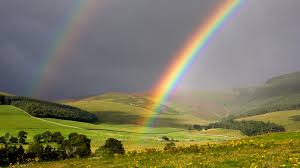Allyson Jule, PhD
Professor of Education & Co-Director of the Gender Studies Minor
Trinity Western University
Wednesday, January 25, 2017 @ 4:00 p.m.
Friedman Building, Room 153, UBC Gate One
Classroom Silences:
Why Saying Nothing at All Can Ruin a Perfectly Good Education
Audio file: https://ubcgcu.org/2017/01/15/allyson-jule-at-ubc-january-25-2017
Abstract
There is a substantial and wide-ranging body of research connecting gender with achievement in schools and in career and home life. This lecture explores the intersection of feminism, faith, classroom silence and linguistic patterns. Gendered speech tendencies are understood as often aligned with expectations of femininity and masculinity with education as a primary site for gendered performances. The particular pattern of silence among female students in a whole variety of educational settings has been surprisingly consistent, particularly in light of advances in feminist pedagogical methods. Many female students are not very vocal in typical teacher-led classroom lessons. In addition, the Christian subculture has added identity factors and pressures concerning gender roles. While more recent work marks an important shift away from gender generalizations and sex differences to the particular situations and events at work in various educational settings, the research presented in this lecture explores how male students ‘have the floor’ with female students often serving as attentive, silent listeners. Various classrooms will serve as case studies, including a grade 2 classroom and 2 theology college classrooms; these examples offer implications for schooling in general and for what student silence tells us about the educational enterprise.
Biography
Allyson Jule, PhD, is Professor of Education and Co-Director of the Gender Studies Institute at Trinity Western University in Langley, BC, Canada. She is also the President of Canada’s Women’s and Gender Studies et Recherches Féministes (WGSRF.com) and a 3M Canada Fellowship winner, 2016. Allyson has particular research interests in the area of gender & language & silence in the classroom as well as gender & language alongside religious identity. She is the author of 2 monographs Gender, Participation and Silence in the Language Classroom:Sh-shushing the Girls and A Beginner’s Guide to Language and Gender (with a second edition due out later this year) and 5 edited collections of sociolinguistic or Christian scholarship: Gender and the Language of Religion, Being Feminist, Being Christian: Essays from Academia, edited with Bettina Tate Pedersen, Language and Religious Identity, Shifting Visions: Gender and Discourse,Facing Challenges: Feminism in Christian Higher Education and Other Places, also with Pedersen. Dr. Jule has also authored several articles in books and peer-reviewed journals of significant readership, including The Canadian Modern Language Review and Gender and Education. She has been very active on the editorial boards of academic journals, such as Gender and Education journal, Gender and Language journal, the British Journal of Contemporary Religion and the Irish Journal of Applied Social Sciences. She serves on the executive council for the International Gender and Language Association (IGALA).
Allyson Jule is a highly respected and internationally renowned scholar in the field of gender and education and gender and language and gender and Christian identity. She has presented her research in interdisciplinary contexts, connecting strongly as an interdisciplinary scholar in the fields of Women’s Studies, Education, Applied Linguistics, Teacher Education, Christian scholarship and Media Studies. She has presented at many national and international conferences, including at conferences in Canada, Germany, New Zealand, United Kingdom, Ireland, Spain, Taiwan, Belgium, and Brazil, and ranging in topics from Sex and the City, the Mary Tyler Moore show, a critique of the Women’s Cancer memoir genre, princesses and superheroes in classroom textbooks, and Christian feminism.
Allyson Jule won TWU’s Davis Distinguished Teaching Award in 2011 and was named one of Canada’s top 10 professors for 2016. She was awarded the prestigious 3M Teaching Fellowship for excellence in university teaching and leadership, marking the only time a TWU professor has been so honoured. The announcement is found here: http://3mcouncil.stlhe.ca/resources/award-winners/#allyson-jule
Tom McLeish November 2016 Lecture Videos
November 3, 2016 Trinity Western University
https://www.youtube.com/watch?v=8vkth1bnx2E
November 4, 2016 St John’s College UBC The Medieval Big Bang




 . But that is for next week. Today there is more at UBC with
. But that is for next week. Today there is more at UBC with